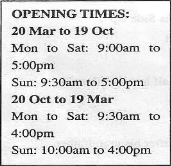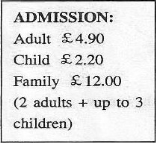题目内容
How often do you let other people like a bad driver, a rude waiter, or an angry boss, change your mood (情绪)?
Sixteen years ago I learned a lesson. I got in a taxi, and we took off for Grand Central Station. We were driving in the right lane (车道) when all of a sudden, a black car jumped out of a parking space right in front of us. My taxi driver used his brakes (车闸), the tires made a loud noise, and at the very last moment our car stopped just 3cm from the back of the other car.
I couldn’t believe it. But then I couldn’t believe what happened next. The driver of the other car, the guy who almost caused a big accident, turned his head around and he started shouting at us. I couldn’t believe it!
My taxi driver just smiled and waved at the guy. So, I said, “Why did you just do that? This guy could have killed us!” And this is when my taxi driver told me what I now call, “The Law of the Garbage Truck”. He said, “Many people are like garbage trucks. They run around full of garbage, full of anger and disappointment. As their garbage piles up, they look for a place to dump (倾倒) it. And if you let them, they’ll dump it on you.
So I started thinking how often I let Garbage Trucks run right over me and how often I take their garbage and spread it to other people.
I began to see Garbage Trucks. I see the load people are carrying. I see them coming to dump it. And like my taxi driver, I don’t take it personally. I just smile, wave, wish them well, and move on.
1.What happened to the author on his way to Grand Central Station?
A. He was caught in a traffic jam.
B. He had a fight with his taxi driver.
C. His taxi suddenly got a flat tire.
D. His taxi almost ran into another car.
2.When the author saw his taxi driver smile and wave at the driver of the black car, he ______.
A. got very angry
B. was deeply impressed
C. felt quite disappointed
D. praised him for his manners
3.The underlined part “the load” in the last paragraph probably refers to _______.
A. waste materials B. poor habits
C. the bad mood D. great pressure
4. How did the author learn to deal with Garbage Trucks?
A. Fight back immediately.
B. Call the police for help.
C. Smile and move on.
D. Dump it on someone else.
1.D
2.B
3.C
4.C
【解析】
试题分析:本文叙述了作者乘坐出租车时发生的事情,通过出租车司机的一番话,阐明一个道理:记住美好的,忘却不愉快的,专注重要的;对待生活的态度决定生活的状态
1.推理判断题。根据My taxi driver used his brakes (车闸), the tires made a loud noise, and at the very last moment our car stopped just 3cm from the back of the other car.我的出租车司机用他的刹车(车闸),轮胎发出一声很大的声响,在最后一刻我们的车停止仅3厘米的另一辆车。故选D。
2.推理判断题。根据So I started thinking how often I let Garbage Trucks run right over me and how often I take their garbage and spread it to other people. 所以我开始思考我让垃圾车跑多久就在我,多久我把垃圾和传播给其他人。可知作者对司机的话是印象深刻的。故选B。
3.猜测词义题。根据 I see them coming to dump it. And like my taxi driver, I don’t take it personally. 就像我的出租车司机,我不把这些放在心上。由整片文章推断可知是指不好的情绪,故选C。
4.
考点:生活类短文阅读

后出生的学生,思想特殊、行为方式和价值观令人担忧。假如你是一名90后出生的学生李华,请根据下表中所提供信息以“Do trust us—a generation born in the 90s”为题写一篇英语演讲稿,以消除人们的忧虑。
90后的境遇 | 面临更多的升学和就业烦恼,所处环境竞争更加激烈。 | |
人们的忧虑 | 1.注重自我,轻视合作,…… 2.缺乏毅力,容易气馁,…… 3.盲目追求,渴望成名,…… | |
我们的长处 | 有勇气来面对挑战,…… (请考生联系自己拟定内容,再列举两至三点。) | |
注意:
1.对所给要点,逐一陈述,适当发挥,不要简单翻译。
2.词数120左右。开头和结尾已经写好,不计入总词数。
3.演讲稿中不得提及考生所在班级及本人姓名。
4.参考词汇:盲目:blindly 毅力:perseverance
Good afternoon, everyone!
The topic of my speech today is “Do trust us—a generation born in the 90s”.
Living in an environment full of fiercer competition, we are faced with more problems in entering higher schools and getting employed.
_____________________________________________________________________
_____________________________________________________________________
_____________________________________________________________________
Thank you for your listening.


 .rather than B. according to
.rather than B. according to